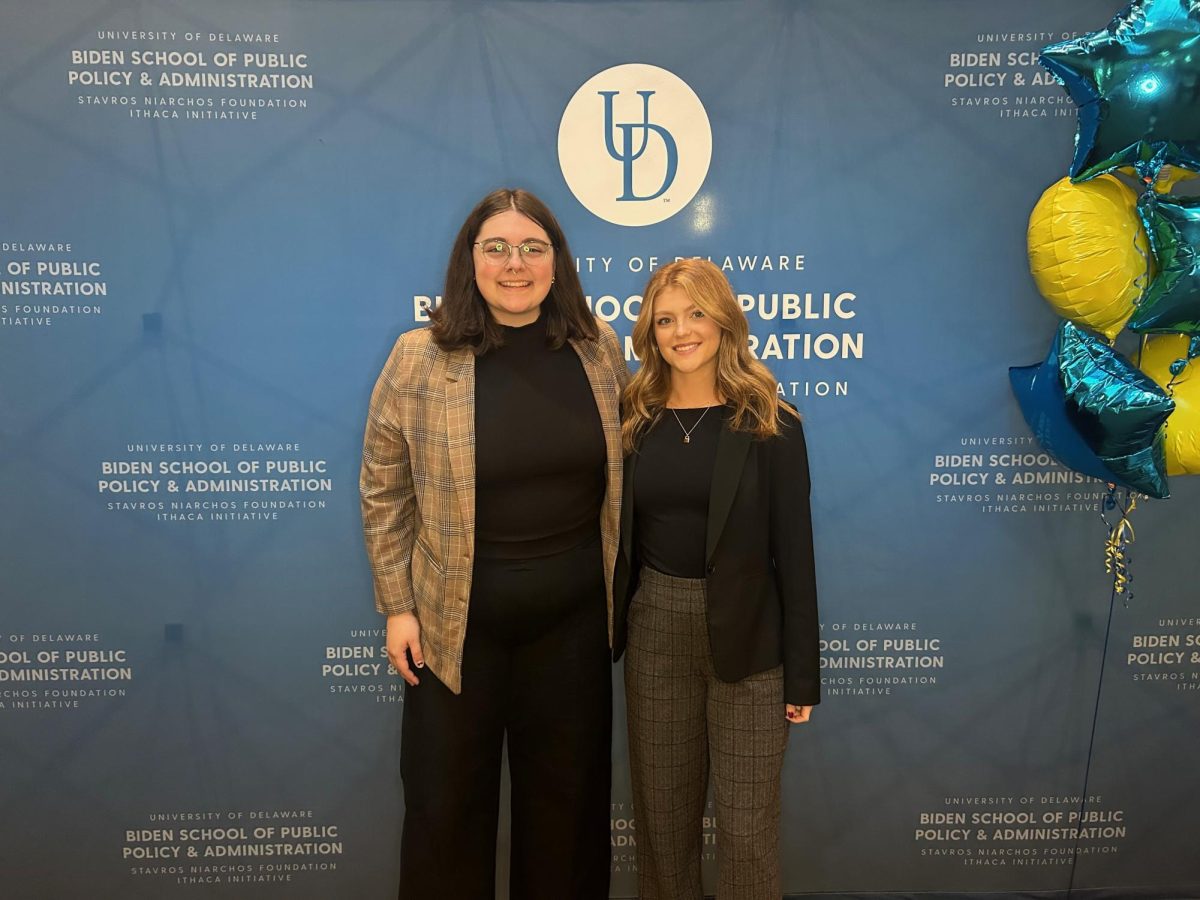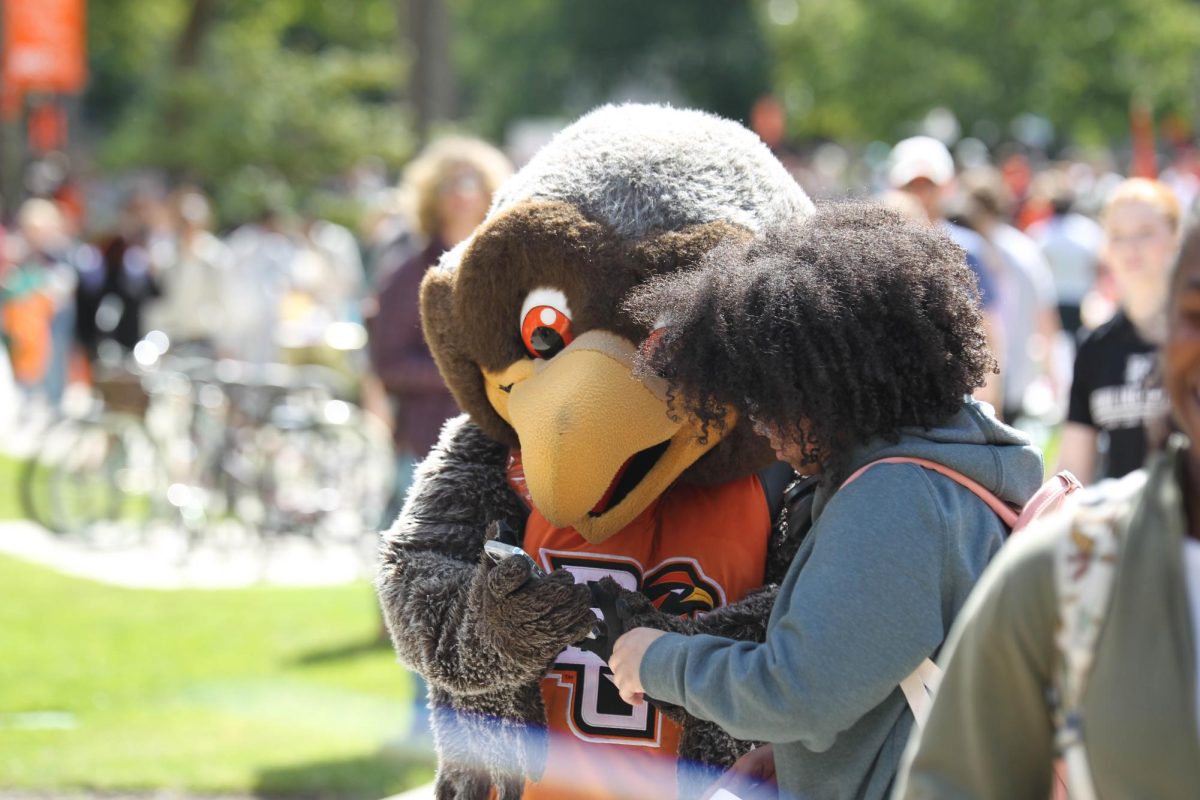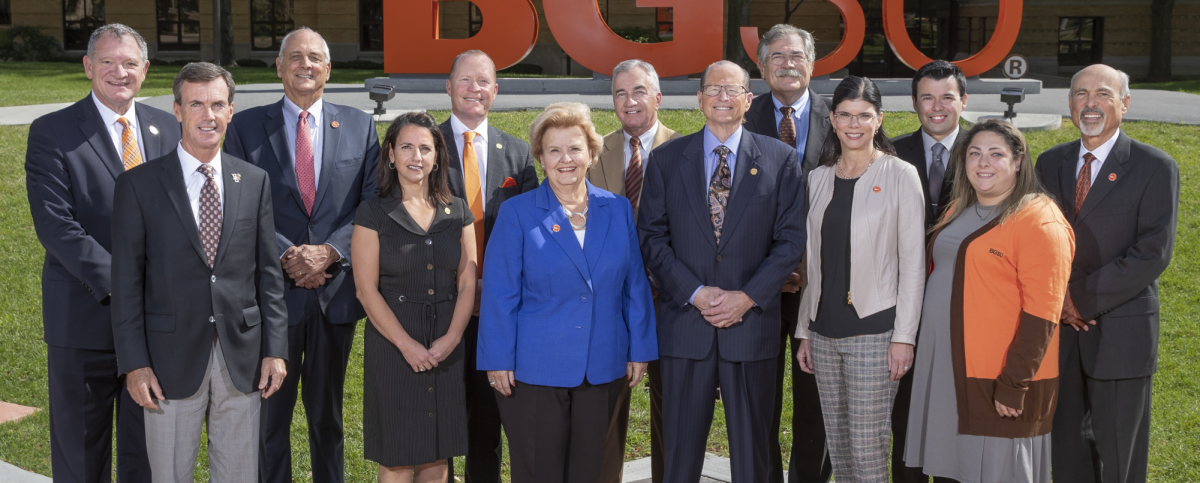The Orange Bike Program is a bike-share program in which bicycles donated by local community members are made available for students, faculty and staff to use.
University Sustainability Coordinator and program creator Nick Hennessy said the program was created last fall and first started to generate membership in the spring.
“Once we established the rules and had the keys, we discovered it worked well enough to know that it is a viable program to have open campus-wide,” he said.
The orange bikes help students get to class faster than walking or driving, and since the bikes are donated by community members that do not want them anymore, they end up here on campus rather than in a landfill, helping to keep the city green, Hennessy said.
The idea to have orange bikes for everyone on campus to use for getting to and from class as well as for recreational purposes was first thought of after seeing other campuses with similar programs, Hennessy said.
“[Ohio State University] has a program where students can swipe their ID card, so the university has their information, and rent a bicycle for let’s say, two days at a time. They have that bike for 48 hours and can use it to get to places around campus or take it around the Columbus area for exercise. That student is then responsible to return the bike when it is due,” he said.
“But here, if someone is part of the program, they are given a key to unlock an orange bike from one of the bike racks, use it anywhere on campus and return it to whatever bike rack they want — it doesn’t have to be the same one they got it from. It’s like a taxi service.”
Hennessy said he was excited to see how many people were interested in the Orange Bike program during Campus Fest.
The program is 100 percent volunteer based; no one is on work study or gets paid but it’s for students who wish to donate their time.
The bikes used for the program are donated through Campus Police. The used bikes that are damaged or abandoned are impounded by Campus Police and are reported to the municipal court.
After a certain period of time, the University is given ownership of the bikes, and they are then donated to the program. Donations from faculty and community members also contribute to the bike inventory.
Environmental science and international studies major Gabriel Morgan said he fully supports what the Orange Bike Program is doing.
“The program has been implemented at other schools and has been made wildly successful,” Morgan said. “The more people aware of this program and the more people involved, the better.”
Marketing and advertising for the program is important so that more people are aware they can use any one of these orange bikes for free, anytime during the year, Morgan said.
“Imagine so many orange bikes that students no longer need to bring their own or even their cars to school because it’s unnecessary,” he said. “We don’t need everyone to ride a bike right now — we need a shift in consciousness.”














